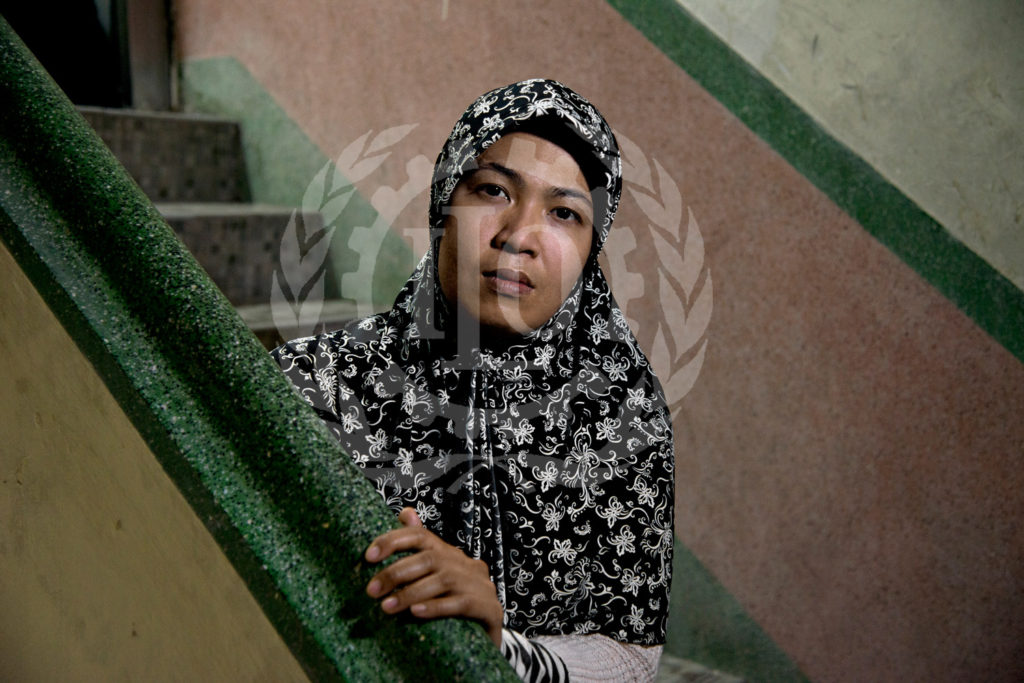Originally published at MintPress News.
RIYADH — Despite reassurances by U.S. government officials that Saudi Arabia is taking steps to end slavery within its borders, human rights experts believe the problem is still widespread, especially among the Gulf kingdom’s domestic workers.
“I thought they would kill me. I had to escape. I wasn’t given enough to eat. They had my wages, my passport, my phone,” said Kasthuri Munirathinam, a domestic worker from India who escaped imprisonment in Saudi Arabia, in an interview with Thomas Reuters Foundation.
“She had been in Saudi Arabia for just two months, one of thousands of Indians heading to the Gulf states every year for work, but was terrified she would never see her family again,” Anuradha Nagaraj reported on May 3.
Last September, news of Munirathinam’s daring escape from a second floor apartment went viral. Her employer chopped off her hand during her efforts to free herself, an injury that would ultimately require the amputation of her arm.
Unlike Munirathinam, many other workers remain imprisoned by their Saudi employers. “Munirathinam’s widely reported story has put a human face to the dilemma faced by many Indian workers, particularly women – whether to leave their villages to take up jobs overseas paying up to three times more than in India but putting their fate in the hands of recruitment agents,” wrote Nagaraj.
Despite the kingdom’s ongoing human rights violations, the United States removed Saudi Arabia from an important blacklist of countries engaged in human trafficking last year. Cuba, and, controversially, Malaysia, were removed at the same time. Though State Department officials cited efforts by all three nations to end human trafficking, others suspect a political motive could be involved.
“Removing Cuba and Saudi Arabia also opens up the U.S. to political attacks, as the Obama administration has made overtures to normalize diplomatic relations with Cuba and push for a nuclear deal with Iran, a regional rival with Saudi Arabia,” Jesse Byrnes wrote last July for The Hill.

Byrnes noted the countries still remain on a watchlist of countries with ongoing human rights concerns. “Moving up one tier indicates that while the countries may still not be complying with minimum standards, they are making significant efforts to meet them, according to the State Department.”
Nagaraj reported that workers routinely impoverish themselves to travel overseas to obtain jobs in Saudi Arabia, only to have their promised wages withheld upon arrival:
A migration survey by the Tamil Nadu state government released in 2015 showed that a migrant spends an average of 108,112 rupees ($1,600) to a secure a job overseas, with half going to recruitment agencies and the rest for visas and travel.
But the survey of 20,000 households also revealed that 39 percent of women and 21 percent of men who work abroad reported not receiving the promised wages.
And in September, Middle East Eye documented at least 900 Mauritanian workers who were enslaved in Saudi Arabia, “where they are trapped working in jobs they did not sign up for.”
Sex trafficking also remains a serious concern, according to a 2015 State Department memo cited byAmericans for Human Rights & Democracy In Bahrain, an NGO supporting human rights reform in the Middle East, which also states that Saudi Arabia has not made “efforts to address child sex tourism by Saudi nationals abroad through any law enforcement efforts.”
Despite token efforts to reduce trafficking and improve communication with foreign officials investigating specific incidents, human rights experts are concerned that the problem remains widespread according to an analysis by the NGO published on May 6:
Like most of the other members of the Gulf Cooperation Council, Saudi Arabia is a destination country for human trafficking. Migrant and domestic workers travel from Southeast Asia, Africa, and East Asia in order to make more money to send home to their families. Once in Saudi Arabia, many laborers, especially female domestic workers, are physically and sexually abused by their employers.
In a 2015 investigation for The Islamic Monthly, Sharon Buchbinder, a professor at Stevenson University, documented the scope of the Saudi slavery situation. She found widespread imprisonment of domestic workers and disturbingly frequent incidents of both child and adult sex trafficking, and she also revealed that foreign workers in the construction, oil, gas and transportation industries fall prey to abuse.
“Abuses of construction workers include withholding of passports, overcrowded and squalid living conditions, long work hours and food deprivation. A number of workers have died of heart failure due to overwork in the intense heat,” Buchbinder wrote.
Citing findings by the International Labor Organization, she suggested that Gulf nations must individually address their trafficking issues, but that it will require “transnational cooperation” to do so.
“Each nation in this important region of the world has an opportunity to address sex, lies and crimes in their backyard,” Buchbinder concluded. “It’s time for those with the political will to take action and put this clandestine commerce out of business.”